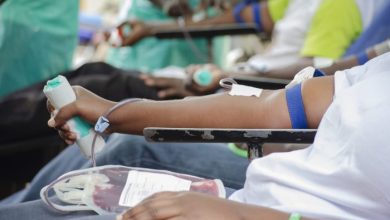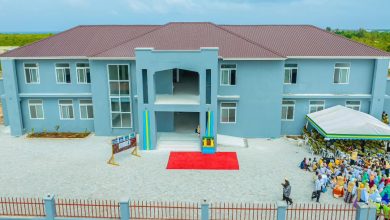KGA boosts national efforts to tackle NCDs

DAR ES SALAAM: TANZANIA’S efforts to combat Non-Communicable Diseases (NCDs) have received a significant boost through the ongoing work of the Korea Foundation for International Healthcare (KOFIH) Global Alumni (KGA) programmes, which continue to implement vital health interventions across the country.
This was said recently by the Senior Health Secretary from the National Health Laboratory, Dr Perpetua Mwambingu, during a KGA meeting held in Dar es Salaam.
Dr Mwambingu said the KGA programmes have benefited many Tanzanians through community health screenings, public health education, provision of medical equipment, research and clinical capacity-building initiatives.
“NCDs such as hypertension, diabetes, cancer and cardiovascular diseases account for an estimated 30 to 40 per cent of all deaths in Tanzania. The growing burden, driven by urbanisation, unhealthy diets and physical inactivity, poses a serious challenge to the country’s health system,” she explained.
She added that the initiatives focus particularly on vulnerable groups, including women, youths, individuals living in high-risk environments and those facing mental health challenges.
ALSO READ: Govt stresses medical confidentiality
Through these interventions, the organisation promotes early diagnosis, public awareness and strengthened healthcare capacity at both community and facility levels.
Ms Mwambingu noted that during the first phase of the NCD project in Dar es Salaam in December 2024, KGA screened 566 community members for hypertension and diabetes, with several referred for follow-up care. The project also reached frontline health workers, who play a crucial role in providing community-level care and education.
Following this success, phase two of the project is scheduled to take place in Dodoma this year, expanding outreach to new areas and strengthening the regional NCD response.
KOFIH Country Representative, Mr Seo Gyeongbae, reaffirmed the organisation’s continued support for Tanzania’s healthcare policies and systems, noting that 208 Tanzanian healthcare professionals have enhanced their skills through specialised training programmes in Korea sponsored by KOFIH. He said these programmes aim to strengthen Tanzania’s healthcare system through international collaboration and capacity-building initiatives.
The KGA Tanzania President, Dr Lulu Sakafu, said that since 2017, KGA has supported hospital-level training, outreach and service delivery in Mbeya, Kigoma, Iringa, Shinyanga, Geita, Lindi, Mwanza, Ukerewe and Arusha. Most activities are centred in regional and referral hospitals, with plans underway to extend services to underserved rural and peri-urban districts.
As Tanzania continues to battle the growing NCD threat, KOFIH Global Alumni’s sustained collaboration with national and local health authorities stands as a strong example of how partnership and community engagement can drive lasting health improvements.





